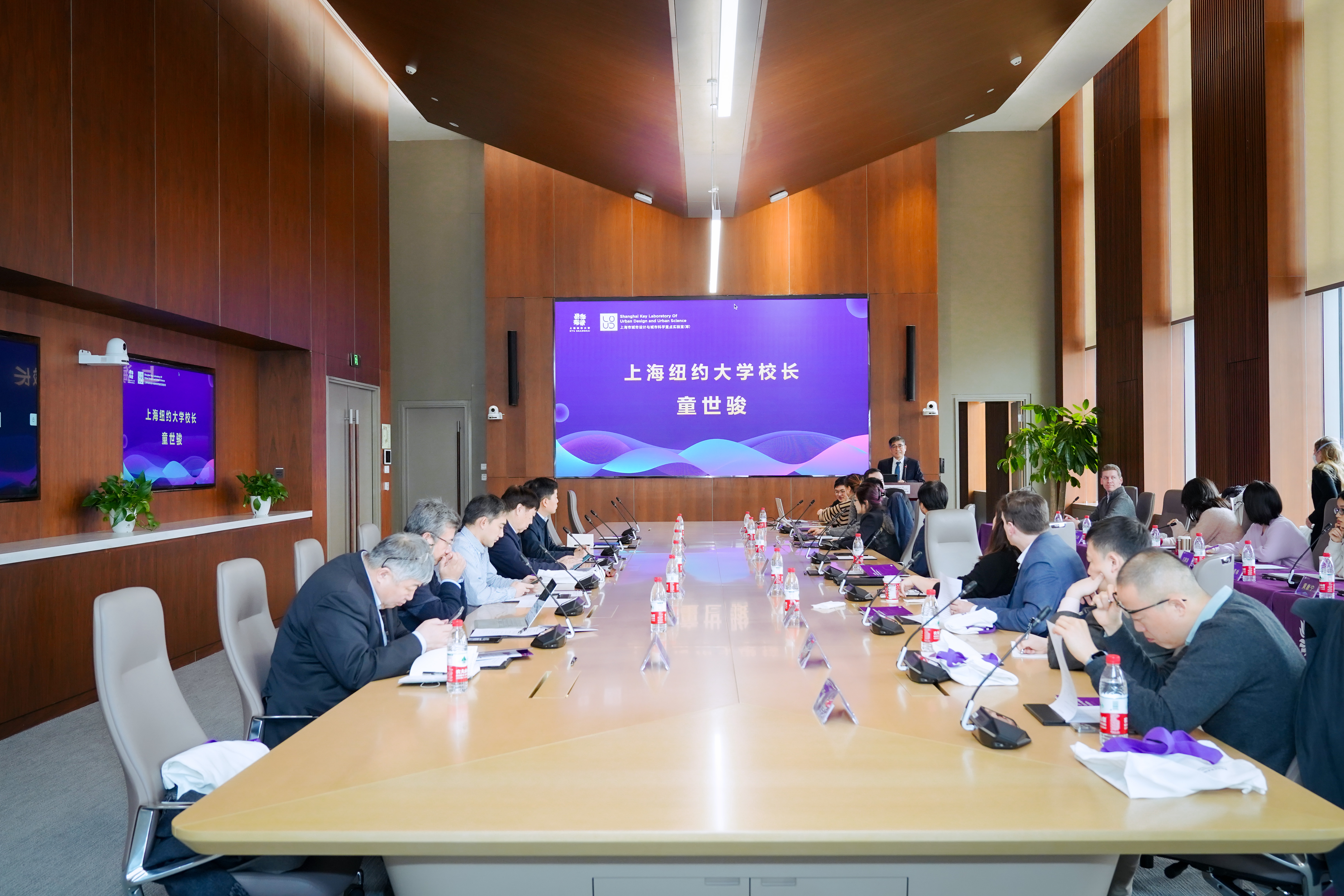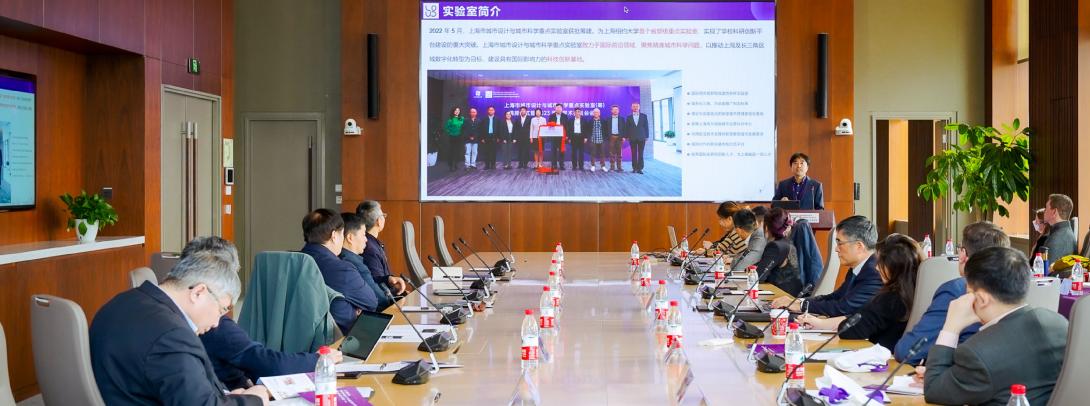On January 29, 2024 the Shanghai Key Laboratory of Urban Design and Urban Science (LOUD) hosted its second Advisory Committee meeting to review the lab’s work over the year and discuss future plans.
LOUD lab members, led by co-directors Assistant Professor of Urban Science and Policy Guan Chenghe and Assistant Professor of Practice in Urban Studies Li Ying, introduced the past year’s accomplishments. In 2023, LOUD continued to explore the forefront of urban studies, particularly in computational urban science issues. The lab conducted academic research and exchanges related to analytics of digital cities, climate adaptive low-carbon cities, and green infrastructure of resilient cities, to further their aim of supporting China’s urban digital transformation.
Leveraging the University’s advantages in urban science, data science, and social science, LOUD has integrated the Yangtze River Delta’s top research resources and created an integrated innovative research and development platform to boost international urban research cooperation.
 LOUD’s Advisory Committee meeting
LOUD’s Advisory Committee meeting
LOUD’s 2024 outlook is dynamic. There are plans to further expand into new research topics and enhance the laboratory’s influence as a technological innovation base. Projects include enhancing the expansion and application of artificial intelligence in areas such as healthy cities and smart cities and building upon existing research in low-carbon urban development and societal perception of blue-green infrastructure planning.
During the discussion session, members of the Academic Committee expressed their recognition of LOUD’s achievements and progress over the past year. They voiced support for the lab’s research directions, and provided guiding opinions and suggestions for subsequent work and development.
The committee members said they looked forward to the lab strengthening and integrating its research capabilities, optimizing its research directions, and producing more landmark research results. They also encouraged the lab to pursue research tasks that echo the needs of national and ministerial development, and to continue to contribute to the development of Shanghai and the Yangtze River Delta region.


